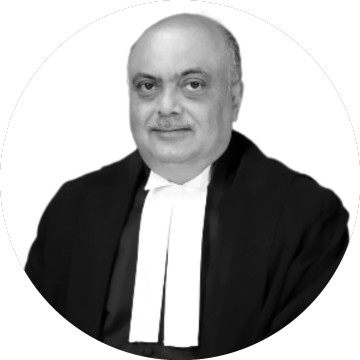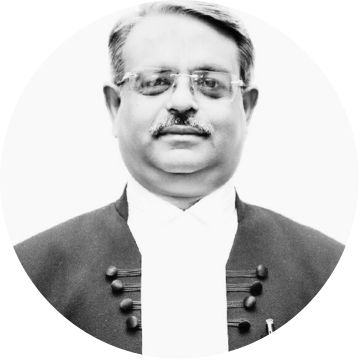Supreme Court: While considering the instant appeal filed by an Additional District and Sessions Judge in Delhi judicial service seeking to expunge adverse findings/remarks recorded against him in the first impugned order dated 2-3-2023 by the Delhi High Court, the 3-Judge Bench of Abhay S. Oka*, Ahsanuddin Amanullah and Augustine George Masih, JJ., emphasised that superior courts can legitimately criticize the orders passed by the Trial Courts or the Appellate Courts by giving reasons. There can be criticism of the errors committed, in some cases, by using strong language. However, such observations must always be in the context of errors in the impugned orders. While doing so, the courts have to show restraint, and adverse comments on the personal conduct and calibre of the Judicial Officer should be avoided.
“There is a difference between criticising erroneous orders and criticising a Judicial Officer. The first part is permissible. The second category of criticism should best be avoided”.
Deciding to expunge the adverse remarks against the appellant, the Court strictly pointed out that the High Court could not have used a judgment on the judicial side to advise individual Judicial Officers. That can only be done on the administrative side in an appropriate case.
Background:
The appellant, while hearing an application for anticipatory bail, made some adverse observations about the conduct of the police officers involved and issued certain directions after rejecting the bail application.
The aggrieved police officers filed a petition under Section 482 of CrPC for expunging the remarks made against them in the orders dated 21-1-2023 and 31-1-2023.
The single Judge Bench of Delhi High Court, in the impugned order directed that all remarks made against the police officers in the orders dated 21-1-2023 and 31-1-2023 to be expunged. Even the directions issued by the appellant against the Commissioner of Police and the Deputy Commissioner of Police was ordered to be deleted. While passing the impugned order, the Judge made certain adverse remarks vis-a-vis the appellant in paragraphs 13 and 14, the single Judge Bench strictly noted that, “ASJ ought not to have embarked on an inexorable quest when his original concern had been suitably addressed. The remarks and the phraseology used by the Ld. ASJ is summary in nature, penal in its scope, stigmatizing in its tone and tenor and as already motioned, beyond the ken of expected judicial conduct”.
Aggrieved with the afore-stated remarks, the instant appeal came before the Supreme Court.
Court’s Assessment:
Perusing the matter, the Court noted that there are there are two parts of the first impugned order. The first part concerned expunging the observations and findings recorded by the appellant against the IO and SHO and setting aside the direction issued by the appellant to the Commissioner of Police for holding an inquiry. The second part concerned the adverse observations/remarks made in paragraphs 13 and 14. The Court clarified that as far as the first part was concerned, the appellant cannot make any grievance, and his grievance must be confined only to the second part.
The Court took note of State of U.P. v. Mohd. Naim, , wherein it was observed that, “(…) it is equally necessary that in expressing their opinions Judges and Magistrates must be guided by considerations of justice, fair-play and restraint. It is not infrequent that sweeping generalisations defeat the very purpose for which they are made (…) it is equally necessary that in expressing their opinions Judges and Magistrates must be guided by considerations of justice, fair-play and restraint. it is not infrequent that sweeping generalisations defeat the very purpose for which they are made”.
Furthermore, the Court took note of In Re: ‘K’, A Judicial Officer, , wherein it was observed that, “The role of High Court is also of a friend, philosopher and guide of judiciary subordinate to it. The strength of power is not displayed solely in cracking a whip on errors, mistakes or failures; the power should be so wielded as to have propensity to prevent and to ensure exclusion of repetition if committed once innocently or unwittingly”.
Referring to the afore-stated observations, the Court explained that Courts higher in the judicial hierarchy are invested with appellate or revisional jurisdiction to correct the errors committed by the courts that are judicially subordinate to it. The High Court has jurisdiction under Article of the and Section 482 of the CrPC to correct the errors committed by the courts which are judicially subordinate to it. The superior courts exercising such powers can set aside erroneous orders and expunge uncalled and unwarranted observations.
“We must hasten to add that no court can be called a “subordinate court”. Here, we refer to “subordinate” courts only in the context of appellate, revisional or supervisory jurisdiction”.
The Court further explained that the High Court Judges, after noticing improper conduct on the part of the Judicial Officer, can always invite the attention of the Chief Justice on the administrative side to such conduct. Whenever action is proposed against a judicial officer on the administrative side, he gets the full opportunity to clarify and explain his position. However, if such personal adverse observations are made in a judgment, the Judicial Officer’s career gets adversely affected.
The Court further noted that in All India Judges’ Association (3) v. Union of India, , the Court directed that within five years, an endeavour should be made to increase the judge-to-population ratio in our trial judiciary to 50 per million. “However, till the year 2024 we have not even reached the ratio of 25 per million. Meanwhile, the population and litigation have substantially increased”.
“The Judges are human beings. All human beings are prone to committing mistakes. To err is human. Almost all courts in our country are overburdened”.
The Court emphasised that Judges have to work under stress. every Judge, irrespective of his post and status, is likely to commit errors. In a given case, after writing several sound judgments, a judge may commit an error in one judgment due to the pressure of work or otherwise; so the higher court can always correct the error. However, while doing so, if strictures are passed personally against a Judicial Officer, it causes prejudice to the Judicial Officer, apart from the embarrassment involved.
“We must remember that when we sit in constitutional courts, even we are prone to making mistakes. Therefore, personal criticism of Judges or recording findings on the conduct of Judges in judgments must be avoided”.
Decision
With the afore-stated assessment, the Court decided to expunge paragraphs 13 and 14 of the impugned order and while strictly observing that describing the appellant’s approach as a ‘judicial misadventure’ was improper.
The Court clarified that that the direction to expunge the remarks made against the appellant will not bind the administrative side of the High Court.
CASE DETAILS
| Citation: Criminal Appeal Nos. 388-389 of 2024 Appellants : Sonu Agnihotri Respondents : Chandra Shekhar | Advocates who appeared in this case For Petitioner(s): Mr. Vivek Narayan Sharma, AOR Mr. Sagar Suri, Adv. Mr. Kabir Sagar Ghosh, Adv. Ms. Shruti Priya Mishra, Adv. Ms. Mahima Bhardwaj Kalucha, Adv. Mr. Adhiraj Wadhera, Adv. For Respondent(s): Mr. S.V. Raju, A.S.G. Mr. Neeraj Shekhar, AOR Mrs. Kshama Sharma, Adv. Mr. Rajesh Kumar Maurya, Adv. Mr. Brijender Chahar, A.S.G. Ms. Ameyavikrama Thanvi, Adv. Ms. Shreya Jain, Adv. Mr. Mukesh Kumar Maroria, AOR Mr. Amit Sharma B, Adv. Mr. Jagdish Chandra Solanki, Adv. Mr. Shiv Mangal Sharma, Adv. Mrs. Nidhi Jaswal, Adv. M/S. Aura & Co., AOR |
CORAM :
Buy Constitution of India
The post appeared first on .


